The Tribunal found that Robert Stannard committed an Anti-Doping Rule Violation (ADRV) for use of a prohibited substance or a prohibited method due to unexplained abnormalities in his Biological Passport* in 2018 and 2019. These abnormalities were thoroughly followed up and investigated by the ITA after the UCI delegated its operational anti-doping program to the independent organisation in the beginning of 2021. As a consequence, the Tribunal has imposed a four-year period of suspension on the rider as well as a monetary fine corresponding to 70% of his average annual salary in 2018 and 2019.
In accordance with the applicable rules, i.e. the World Anti-Doping Code and the UCI Anti-Doping Rules, the Tribunal decided that the period of suspension shall start on 17 August 2018, i.e. the day of the appearance of the first abnormality, taking into account the delay with which the rider’s abnormalities were communicated to the UCI.
The decision is not final as it can be appealed before the Court of Arbitration for Sport (CAS) by the rider, his National Federation and National Anti-Doping Agency, the UCI and the World Anti-Doping Agency (WADA) within one month. The decision will be published on the UCI website once final.
The ITA will not comment further on the matter.
The International Testing Agency (ITA) confirms as follows:
- A sample collected in-competition (IC) by the ITA from Turkish weightlifter Hakan Sukru Kurnaz returned an Adverse Analytical Finding (AAF)[1] for the presence of methasterone metabolite, a non-specified prohibited substance, according to the prohibited list of the World Anti-Doping Agency (WADA). The athlete was able to establish that the presence of methasterone metabolite in his sample was through use of a contaminated supplement. The case was resolved via an agreement on consequences pursuant to article 8.3.1 of the anti-doping rules of the International Weightlifting Federation (IWF ADR, and the equivalent provision in the World Anti-Doping Code). The athlete accepted a period of ineligibility of 22 months from 26 May 2023 and the disqualification of all competitive results from 21 April 2023 onwards.
- A sample collected IC by the ITA from Turkish weightlifter Pelinsu Bayav returned AAFs for the presence of methasterone, stanozolol metabolites, methyltestosterone metabolite and clenbuterol, non-specified prohibited substances, according to the prohibited list of WADA. The athlete admitted to the violation under Article 10.8.1 IWF ADR and the case was resolved via an agreement on consequences pursuant to article 8.3.1 IWF ADR. The athlete accepted a period of ineligibility of 36 months from 26 May 2023 and the disqualification of all competitive results from 15 April 2023 onwards.
- Turkish weightlifter Dogan Donen has committed an anti-doping rule violation under article 2.4 of the IWF ADR namely the occurrence of three Whereabouts Failures within a 12-month period.[2] The athlete accepted the consequences of the violation, and the ITA issued a sanctioning decision under Article 8.3.3 of the IWF ADR imposing a period of ineligibility of 24 months from 8 April 2024 and the disqualification of all competitive results from 1 April 2023 onwards.
Given that three athletes from the Turkish Weightlifting Federation have committed anti-doping rule violations (ADRVs) within a 12-month period, this has triggered the Article 12.3[3] of the IWF ADR and provisions of the IWF Olympic Qualification System (OQS). As a result, the matter has been submitted to IWF’s Independent Member Federation Sanctioning Panel to impose appropriate consequences.
No further comments will be made on these cases.
The Tribunal found Miguel Ángel López guilty of an anti-doping rule violation (ADRV) for use and possession of a prohibited substance (Menotropin)*, concomitantly with the 2022 Giro d’Italia, and has imposed a four-year suspension on the rider.
In accordance with the World Anti-Doping Code and the UCI Anti-Doping Rules, the period of suspension started on 25 July 2023 and will remain in force until 24 July 2027.
The disciplinary proceeding was initiated following an investigation conducted by the ITA based on evidence obtained from the Spanish Guardia Civil and the Spanish Anti-Doping Organisation (CELAD) in the so-called Operation “Ilex” concerning Dr Marcos Maynar. This valuable collaboration demonstrates the importance of intelligence-sharing between the ITA, National Anti-Doping Organisations and law enforcement authorities.
In line with the Procedural Rules of the UCI Tribunal, the decision will be published on the UCI website. The decision may be appealed before the Court of Arbitration for Sport (CAS) within one month.
The ITA will not comment further on the matter.
As a reminder, the UCI delegated the operational activities of its anti-doping programme to the International Testing Agency (ITA) in January 2021. Since then, cycling’s clean sport efforts have been led by the ITA Cycling Unit, which is dedicated specifically to all disciplines of cycling. The UCI and the ITA are bound by a service agreement which guarantees that the ITA operates in an independent manner.
Please find the UCI statement on the matter here.
The Court of Arbitration for Sport (CAS) has issued its decision in the appeal arbitration procedures CAS 2023/A/9451 Association Russian Anti-Doping Agency (RUSADA) v. Kamila Valieva, CAS 2023/A/9455 International Skating Union (ISU) v. Kamila Valieva, Association Russian Anti-Doping Agency (RUSADA), and CAS 2023/A/9456 World Anti-Doping Agency (WADA) v. Association Russian Anti-Doping Agency (RUSADA) & Kamila Valieva):
- The decision taken by the Disciplinary Anti-Doping Committee of the Russian Anti-Doping Agency No. 9/2023 on 24 January 2023 in relation to Ms Kamila Valieva is set aside.
- Ms Valieva is found to have committed an Anti-Doping Rule Violation (ADRV) under Clause 4.1 of the All-Russian Anti-Doping Rules of 24 June 2021 (the Russian ADR).
- A period of four (4) years ineligibility is imposed on Ms Valieva, starting on 25 December 2021.
- All competitive results of Ms Valieva from 25 December 2021 are disqualified, with all the resulting consequences (including forfeiture of any titles, awards, medals, profits, prizes, and appearance money).
According to Clause 4.1 of the Russian ADR, athletes are responsible for any Prohibited Substance found to be present in their samples and the presence of any prohibited substance amounts to an ADRV. In this matter, a prohibited substance, Trimetazidine (TMZ), was found to be present in the sample collected from Ms Valieva on 25 December 2021 during the Russian National Championships in St Petersburg, Ms Valieva did not contest liability in that she accepted that, by reason of the presence of a TMZ in her sample, she had committed an ADRV under Clause 4.1 of the Russian ADR
It was therefore a matter for the CAS Panel to consider what sanctions, if any, should be imposed on Ms Valieva pursuant to the Russian ADR, bearing in mind that, in the absence of grounds for elimination, reduction or suspension, the Russian ADR provide for a four-year period of ineligibility. In order to benefit from a reduced period of ineligibility, Ms Valieva needed to prove, by a balance of probabilities that she had not intentionally committed the ADRV by engaging in conduct which she knew constituted an ADRV or in conduct where she knew that there was a significant risk that said conduct might constitute or result in an ADRV and had manifestly disregarded that risk. Having carefully considered all the evidence put before it, the CAS Panel concluded that Ms Valieva was not able to establish, on the balance of probabilities and on the basis of the evidence before the Panel, that she had not committed the ADRV intentionally (within the meaning of the Russian ADR).
The CAS Panel stressed that the test with respect to intention under Clause 12.2 of the Russian ADR is one and the same whether the athlete is an adult or a Protected Person. It means that if a Protected Person fails to discharge the burden (which under the Russian ADR is borne by the athlete) that he or she did not commit ADRV intentionally, there is no basis under the rules to treat them any differently from an adult athlete. Accordingly, since it was determined that there was no scope for the exercise of discretion to reduce the period of ineligibility, a four-year period of ineligibility was imposed by the Panel.
The period of ineligibility starts on 25 December 2021 and any period of provisional suspension served by Ms Valieva is to be credited against that period of ineligibility. The CAS Panel also ordered the disqualification all competitive results achieved by Ms Valieva from 25 December 2021, with all the resulting consequences (including forfeiture of any titles, awards, medals, profits, prizes, and appearance money).
The consequences linked to the retroactive disqualification of Ms Valieva from past events, including from the Olympic Winter Games Beijing 2022, were not within the scope of this arbitration procedure and will have to be examined by the sports organisations concerned.
The Arbitral Award issued by the CAS Panel is currently subject to a confidentiality review meaning that the parties might request that the Arbitral Award, or certain information contained in it, remain confidential. For this reason, the Arbitral Award will not be published immediately on the CAS website.
The CAS Panel’s decision is final and binding, with the exception of the parties’ right to file an appeal to the Swiss Federal Tribunal within 30 days on limited grounds.
THE INTERNATIONAL TESTING AGENCY (ITA) REPORTS THAT HAUDENOSAUNEE NATIONALS LACROSSE PLAYER AUSTIN STAATS HAS ACCEPTED A 3-MONTH PERIOD OF INELIGIBILITY AFTER TESTING POSITIVE FOR PROHIBITED SUBSTANCES.
The ITA confirms that a sample collected in-competition from Austin Staats at the World Lacrosse Men’s Championship 2023 in San Diego, California (USA), returned an Adverse Analytical Finding (AAF) for the prohibited substances carboxy-THC, cocaine and its metabolite benzoylecgonine.
The athlete established that he had consumed the prohibited substances out-of-competition and in a context unrelated to sport performance. His sanction was thus lowered to three months insofar as he meets the requirements of the mitigation regime of “Substance of Abuse” set forth in Article 10.2.4.1 of the World Lacrosse Anti-Doping Rules.¹
The athlete was declared ineligible from 6 September 2023 (date of the notification of the AAF) to 5 December 2023. The athlete’s individual results from 1 July 2023 (date of the sample collection) onwards, including all individual results obtained at the World Lacrosse Men’s Championship 2023, have also been disqualified.
The prosecution of the matter was handled by the ITA on behalf of World Lacrosse.
The ITA will not comment further on this case.
THE INTERNATIONAL TESTING AGENCY (ITA) REPORTS THAT HAUDENOSAUNEE NATIONALS LACROSSE PLAYER OAKLEY THOMAS HAS ACCEPTED A 3-MONTH PERIOD OF INELIGIBILITY AFTER TESTING POSITIVE FOR PROHIBITED SUBSTANCES.
The ITA confirms that a sample collected in-competition from Oakley Thomas at the World Lacrosse Men’s Championship 2023 in San Diego, California (USA), returned an Adverse Analytical Finding (AAF) for the prohibited substances carboxy-THC, cocaine and its metabolite benzoylecgonine.
The athlete established that he had consumed the prohibited substances out-of-competition and in a context unrelated to sport performance. His sanction was thus lowered to three months insofar as he meets the requirements of the mitigation regime of “Substance of Abuse” set forth in Article 10.2.4.1 of the World Lacrosse Anti-Doping Rules.¹
The athlete was declared ineligible from 6 September 2023 (date of the notification of the AAF) to 5 December 2023. The athlete’s individual results from 1 July 2023 (date of the sample collection) onwards, including all individual results obtained at the World Lacrosse Men’s Championship 2023, have also been disqualified.
The prosecution of the matter was handled by the ITA on behalf of World Lacrosse.
The ITA will not comment further on this case.
Sport Integrity Australia today acknowledged the decision of Football Australia to impose a ban of two-years and nine-months on athlete Damian Tsekenis for the Presence, Use, Use and/or Attempted Use, and Possession of Prohibited Substances.
Mr Tsekenis, who played for the Central Coast Mariners, returned Adverse Analytical Findings from an out-of-competition doping control test on 23 March 2022.
His sample was analysed at the Australian Sports Drug Testing Laboratory, part of the National Measurement Institute, which detected the presence of Prohibited Substances Ostarine and its metabolite Hydroxy-ostarine, and Ibutamoren.
It was determined that on and/or before 23 March 2022 Mr Tsekenis used Prohibited Substances, namely Ostarine and Ibutamoren.
In addition, it was also determined:
- On and/or around 1 January 2021 to on and/or around 31 October 2021, Mr Tsekenis used and/or attempted to use a Prohibited Substance, namely LGD-4033 (Ligandrol).
- On and/or around 1 January 2021 to on and/or around 21 March 2022, Mr Tsekenis used and/or attempted to use a Prohibited Substance, namely RAD140.
- On and/or around 1 January 2021 to on and/or around 31 October 2021, he possessed a Prohibited Substance, namely LGD-4033 (Ligandrol).
- On and/or around 1 January 2021 to on and/or around 21 March 2022, he possessed a Prohibited Substance, namely RAD140.
Mr Tsekenis is ineligible to participate in any sports that have adopted a World Anti-Doping Code compliant anti-doping policy until 21 December 2024.
ADDITIONAL INFORMATION ON THE PROHIBITED SUBSTANCE
Ostarine, LGD-4033 (Ligandrol) and RAD140 are Selective Androgen Receptor Modulators (SARMs) and are prohibited at all times under the S1 Anabolic Agent category of the WADA Prohibited List.
SARMs are promoted as selective non-steroidal anabolic agents. They are claimed to be substances that induce muscle (and bone) growth without the side effects associated with steroid use. However, the medium and long-term health impacts are unknown due to a lack of medium and long-term clinical trials.
It should be noted that a number of SARMs have associated health-risks, particularly for the heart and liver.
Sport Integrity Australia is committed to protecting the right of clean athletes to fair competition. If you are aware of any suspicious doping activity, you can report it anonymously via the Sport Integrity Australia website or call us on 1300 027 232.
Sport Integrity Australia recommends you check all of your substances before you take them on the Sport Integrity app. For more information visit: Sport Integrity Australia website.
Divine Oduduru has been banned for six years by a three-member Disciplinary Tribunal for committing two Anti-Doping Rule Violations (ADRVs) of Possession of Prohibited Substances and the Attempted Use of a Prohibited Substance or Method and ordered to pay World Athletics US$3000 towards its expenses regarding the case.
The ban takes retroactive effect from 9 February 2023 – the date on which the Nigerian sprinter’s provisional suspension began – and runs until 8 February 2029, while all his results from July 12 2021 until the date of his provisional suspension have been disqualified.
The case arose out of the criminal investigation into Eric Lira who earlier this year became the first person to plead guilty under the US Rodchenkov Anti-Doping Act to providing performance enhancement drugs to Olympic athletes in advance of the Tokyo Olympic Games (Southern District of New York | First Defendant Charged With Violating Anti-Doping Act Pleads Guilty In Manhattan Federal Court | United States Department of Justice). The initial complaint issued by the US Department of Justice against Lira in January 2022 made reference to two athletes, “Athlete1” and “Athlete-2”. By comparing information from Blessing Okagbare’s doping cases, which resulted in a cumulative 11-year ban for her last year, the Athletics Integrity Unit (AIU) concluded that “Athlete-1” was Okagbare and, following an interview with her Nigerian teammate Oduduru, in May 2022, the AIU concluded that Oduduru was “Athlete-2”.
“We are very pleased with the outcome of this matter, given its particularly grievous nature, exposing the sinister collusion between athletes and other persons in deliberate plans to corrupt athletics at the highest level,” said Brett Clothier, Head of the AIU – World Athletics’ independent integrity arm which brought the charges against Oduduru.
“The AIU is fully committed to unearthing cheats and the extent of their networks. In our quest to protect the integrity of athletics, we often work closely with other investigative organisations. On this occasion, we are grateful for the assistance from the United States Anti-Doping Agency (USADA) and United States Department of Justice whose legal reach provided vital evidence which helped in this matter as well as in our case against Blessing Okagbare last year.”
The panel found Oduduru guilty of Possession of a Prohibited Substance or a Prohibited Method under Rule 2.6 of the World Athletics Anti-Doping Rules (ADR) and of Attempted Use of a Prohibited Substance or a Prohibited Method (ADR 2.2), together treated as a single first violation. Oduduru received a mandatory fouryear ban for the combined violation, with an additional two years for Aggravating Circumstances (ADR 10.4), after the panel determined there was justification for increasing the period of ineligibility, due to the athlete having multiple nonspecified Prohibited Substances which he attempted to use in the lead-up to World Athletics’ competitions and the Tokyo Olympic Games (summer 2021).
“To procure those substances, he engaged into a scheme with his teammate who in her turn was procuring those substances on his behalf from a person who was illegally bringing them to US in order to distribute among athletes with the aim to improve their sport performance, thus influencing unfairly the outcome of athletic competitions, including the major ones. The Panel considers this behaviour to be particularly serious,” read the decision.
While the panel did not uphold the AIU’s charge against Oduduru of Use of a Prohibited Substance or a Prohibited Method, it was satisfied that he had engaged in conduct that constituted a substantial step in a course of conduct planned to culminate in the Use of a Prohibited Substance and therefore upheld the Attempted Use charge.
Oduduru, who turned 27 on 7 October, maintained his innocence despite overwhelming evidence against him. At the core of the AIU’s case were Whatsapp messages between Okagbare and Lira, which revealed Okagbare soliciting Prohibited Substances on Oduduru’s behalf, and photographic evidence of multiple Prohibited Substances discovered in Oduduru’s Florida apartment.
The Prohibited Substances found in Oduduru’s apartment were two boxes of Somatropin, “Xerendip” and “Humatrope”, which were identified as human growth hormone; a plastic ziplock bag labelled “IGF LR3” – an abbreviation for synthetic or “recombinant” Insulin Growth Factor – containing three vials, and two boxes of recombinant erythropoietin (EPO). According to testimony, one of the boxes of EPO was open and had only one of six vials remaining.
Also discovered in the apartment was an opened US Postal Service envelope containing “Xerendip” – addressed to Okagbare and with Lira labelled as the sender.
“The Panel finds it to be an extraordinary coincidence that all the Prohibited Substances found in the Athlete’s apartment were precisely those requested from Mr. Lira by Ms. Okagbare for her and “Divine”, specifying that she had to give (to Divine) his stuff too and for which she tested positive (EPO and hGH),” asserted the Panel.
Given the Prohibited Substances found in Oduduru’s apartment, when and where they were found, and the fact that he had exclusive control of the apartment, the panel concluded that Oduduru was in constructive possession of the Prohibited Substances.
Published Wednesday, 23 November 2022.
Sport Integrity Australia acknowledges that Australia Weightlifting Federation (AWF) has imposed a three-year ban on athlete Songhwan (Alan) Park for the Presence of a Prohibited Substance/s and/or its metabolite and Use and Possession of Prohibited Substances.
Mr Park, a Masters athlete, returned an Adverse Analytical Finding from an In-Competition doping control test on 15 May 2022 during the Queensland Weightlifting Association State Masters Championships.
Mr Park’s sample was analysed at the Australian Sports Drug Testing Laboratory, part of the National Measurement Institute, and the presence of prohibited substances LGD-4033 (Ligandrol) and its metabolite Di-hydroxy LGD-4033, RAD140, Higenamine, and N,N-Dimethyl Phenethylamine (DMPEA) were detected.
The substances LGD-4033 (Ligandrol) and RAD140, known as Selective Androgen Receptor Modulators (SARMs), are classified as Class S1.2 (Other Anabolic Agents) substances and are prohibited at all times. Higenamine is classified as a Class S3 (Beta-2 Agonists) substance and is also prohibited at all times. N,N-Dimethyl Phenethylamine (DMPEA) is classified as a Class S6 (Stimulants) substance and is prohibited In-Competition only.
It was also determined that:
- On and/or before 15 May 2022, Mr Park used LGD-4033 (Ligandrol); and/or RAD140; and/or Higenamine.
- On 15 May 2022, Mr Park used the Prohibited Substance DMPEA.
- From on and/or around 10 February 2021 to on and/or around 15 May 2022, Mr Park possessed LGD-4033 (Ligandrol); and/or RAD140.
Mr Park’s ban, commencing on 15 May 2022, was reduced by 12 months following a full admission of the alleged anti-doping rule violations.
Mr Park is ineligible to participate in any sports that have adopted a World Anti-Doping Code compliant anti-doping policy until 15 May 2025. He is also not permitted to compete in a non-Signatory professional league or Event organised by a non-Signatory International Event organisation or a non-Signatory national-level Event organisation.
The International Testing Agency (ITA) confirms that samples it collected out-of-competition (OOC) on 27 October 2022 from Ukrainian weightlifters Ruslan Kozhakin and Bohdan Taranenko returned an Adverse Analytical Finding (AAF)[1] for the presence of the prohibited substance trimetazidine, a non-specified prohibited substance, according to the prohibited list of the World Anti-Doping Agency (WADA).
Following the results management process, the ITA submitted the matters for adjudication to the Anti-Doping Division of the Court of Arbitration for Sport (CAS ADD). On 24 May 2024, CAS ADD issued its final decision confirming that the athletes had committed Anti-Doping Rule Violations (ADRVs) and sanctioned Ruslan Kozhakin and Bohdan Taranenko each with a period of ineligibility of 48 months from 2 December 2022 and a disqualification of their competitive results from 27 October 2022 onwards. The athletes have also been granted a 6-month credit for providing Substantial Assistance[2] to the Ukrainian National Anti-Doping Organization.
Additionally, an OOC sample collected by the ITA from Alina Marushchak on 10 March 2023 returned an AAF for the presence of the prohibited substance hydrochlorothiazide, a specified prohibited substance, according to the prohibited list.
The case was resolved via an agreement on consequences pursuant to article 8.3.1 of the anti-doping rules of the International Weightlifting Federation (IWF ADR, and the equivalent provision in the World Anti-Doping Code). The athlete accepted a period of ineligibility of two years from 13 April 2023 and the disqualification of all competitive results from 10 March 2023 onwards.
Given that the three athletes from the Ukrainian Weightlifting Federation have committed ADRVs within a 12-month period, this has triggered the Article 12.3[3] of the IWF ADR and provisions of the IWF Olympic Qualification System (OQS). As a result, the matter will now be submitted to IWF’s Independent Member Federation Sanctioning Panel to impose appropriate consequences.
No further comments will be made on this case.
USADA announced today that Jaron Flournoy, of Inkster, Mich., an athlete in the sport of track and field, has accepted a three-year suspension for his possession of a prohibited substance while a member of USA Track & Field.
In addition to education and testing, robust anti-doping programs enable investigations stemming from various sources, including positive tests, tips (Play Clean Tip Line), and whistleblowers. This type of information, specifically information stemming from the positive test of another athlete, led USADA to discover that Flournoy purchased ostarine online, and the ostarine was delivered in December 2022. Although Flourney also used the prohibited substance, his use occurred after his membership with USA Track & Field expired, at which time he was not subject to the anti-doping rules.
Ostarine is classified by WADA as a Non-Specified Substance in the class of Anabolic Agents. It is prohibited at all times under the USADA Protocol for Olympic and Paralympic Movement Testing, the United States Olympic and Paralympic Committee National Anti-Doping Policy, and the World Athletics Anti-Doping Rules, all of which have adopted the World Anti-Doping Code and the WADA Prohibited List.
Under Article 10.8.1 of the Code, an athlete who faces an anti-doping rule violation that carries a period of ineligibility of four or more years may receive a one-year sanction reduction if the athlete admits the violation and accepts the asserted sanction within 20 days of notification of the alleged anti-doping rule violation charge. Per the rule, Flournoy qualified for a one-year reduction to the otherwise applicable four-year period of ineligibility as he admitted and accepted the sanction within the time allowed.
Flournoy’s three-year period of ineligibility began on February 14, 2024, the date his provisional suspension was imposed. In addition, Flournoy has been disqualified from all competitive results obtained on and subsequent to December 1, 2022, the approximate date he obtained ostarine, including forfeiture of any medals, points, and prizes.
In an effort to aid athletes, as well as support team members such as parents and coaches, in understanding the rules applicable to them, USADA provides comprehensive instruction on its website on the testing process and prohibited substances, how to file and update athlete Whereabouts, how to obtain permission to use a necessary medication, and the risks and dangers of taking supplements, as well as performance-enhancing and recreational drugs.
In addition, USADA manages a drug reference hotline, Global Drug Reference Online (GlobalDRO.com), conducts educational sessions with National Governing Bodies and their athletes, and distributes a multitude of educational materials, such as a supplement guide, a nutrition guide, a clean sport handbook, and periodic alerts and advisories.
USADA makes available a number of ways to report the abuse of performance-enhancing drugs in sport in an effort to protect clean athletes and promote clean competition. Any tip can be reported using the USADA Play Clean Tip Center, by text at 87232 (“USADA”), by email at This email address is being protected from spambots. You need JavaScript enabled to view it., by phone at 1-877-Play Clean (1-877-752-9253) or by mail.
USADA is responsible for the testing and results management process for athletes in the U.S. Olympic and Paralympic Movement and is equally dedicated to preserving the integrity of sport through research initiatives and educational programs.
USADA announced today that Katelyn Kirby, of Johnstown, Colo., an athlete in the sport of weightlifting, has accepted a three-year period of ineligibility for an anti-doping rule violation after testing positive for and admitting the use of prohibited substances.
Kirby, 36, tested positive for a prohibited anabolic agent and its metabolites of synthetic origin as the result of a urine sample collected at the 2023 USA Weightlifting National Championships on June 30, 2023. Based on abnormal Athlete Biological Passport (ABP) markers, her urine sample was analyzed using a specialized test known as Isotope Ratio Mass Spectrometry (IRMS), that unequivocally differentiates between anabolic androgenic steroids (AAS) naturally produced by the body and AAS of synthetic origin.
After investigating, USADA determined that Kirby was using testosterone under the direction of a physician, but she lacked a valid Therapeutic Use Exemption (TUE). Under the USADA TUE Policy, an athlete has the responsibility to demonstrate that the therapeutic need to treat an acute or chronic condition satisfies the strict criteria within the WADA International Standard for TUEs (ISTUE). Anabolic agents like testosterone have powerful performance-enhancing capabilities and can give an athlete an unfair advantage over fellow competitors, which is why criteria must be fulfilled beyond merely providing a prescription. Additionally, Kirby admitted to using oxandrolone for which she had no documented medical need in the final months of 2022.
Both testosterone and oxandrolone are Non-Specified Substances in the class of Anabolic Agents and are prohibited at all times under the USADA Protocol for Olympic and Paralympic Movement Testing, the United States Olympic and Paralympic Committee National Anti-Doping Policy, and the International Weightlifting Federation Anti-Doping Rules, all of which have adopted the World Anti-Doping Code and the World Anti-Doping Agency Prohibited List.
Under Article 10.8.1 of the Code, an athlete who faces an anti-doping rule violation that carries a period of ineligibility of four or more years may receive a one-year sanction reduction if the athlete admits the violation and accepts the asserted sanction within 20 days of notification of the alleged anti-doping rule violation charge. Per the rule, Kirby qualified for a one-year reduction to the otherwise applicable four-year period of ineligibility.
Kirby’s three-year period of ineligibility began on October 20, 2023, the date her provisional suspension was imposed. In addition, Kirby has been disqualified from all competitive results obtained on and subsequent to June 30, 2023, the date her positive sample was collected, including forfeiture of any medals, points and prizes.
THE INTERNATIONAL TESTING AGENCY (ITA) REPORTS THAT PERU LACROSSE PLAYER JAMES ALEXANDER BURLESON-PORRAS WAS SANCTIONED WITH A 3-MONTH PERIOD OF INELIGIBILITY AFTER TESTING POSITIVE FOR PROHIBITED SUBSTANCES.
The ITA confirms that a sample collected in-competition from James Alexander Burleson-Porras at the World Lacrosse Men’s Championship 2023 in San Diego, California (USA), returned an Adverse Analytical Finding (AAF) for the prohibited substances cocaine and its metabolite benzoylecgonine.
The athlete established that he had consumed the prohibited substance out-of-competition and in a context unrelated to sport performance. The athlete’s sanction was thus lowered to three months insofar as he meets the requirements of the mitigation regime of “Substance of Abuse” set forth in Article 10.2.4.1 of the World Lacrosse Anti-Doping Rules.¹
The athlete was declared ineligible from 6 September 2023 (date of the notification of the AAF) to 5 December 2023. The athlete’s individual results from 26 June 2023 (date of the sample collection) onwards, including all individual results obtained at the World Lacrosse Men’s Championship 2023, have also been disqualified.
The prosecution of the matter was handled by the ITA on behalf of World Lacrosse.
The ITA will not comment further on this case.
USADA announced today that Evan Forrest, of Winston-Salem, N.C., an athlete in the sport of weightlifting, has accepted a three-year period of ineligibility for an anti-doping rule violation after testing positive for several potent performance-enhancing drugs.
“Testing continues to be a crucial way to detect doping and hold accountable athletes who are deliberately cheating their opponents,” said USADA CEO Travis T. Tygart. “In these cases, it’s important that we apply the full force of the rules to ensure these bad actors can’t continue to corrupt sport at any level of competition.”
Forrest, 29, tested positive for boldenone and drostanolone, as well as metabolites of these substances, and also tested positive for metabolites of methandienone and nandrolone as the result of a urine sample collected at the 2023 North American Open Series 2 on September 17, 2023. Additionally, Forrest’s urine sample was analyzed using a specialized test known as Isotope Ratio Mass Spectrometry (IRMS), that unequivocally differentiates between anabolic androgenic steroids (AAS) naturally produced by the body and AAS of synthetic origin. The IRMS analysis further confirmed the presence of exogenous testosterone and its metabolites in Forrest’s sample.
All substances are Non-Specified Substances in the class of Anabolic Agents and are prohibited at all times under the USADA Protocol for Olympic and Paralympic Movement Testing, the United States Olympic and Paralympic Committee National Anti-Doping Policy, and the International Weightlifting Federation Anti-Doping Rules, all of which have adopted the World Anti-Doping Code and the World Anti-Doping Agency Prohibited List.
Under Article 10.8.1 of the Code, an athlete who faces an anti-doping rule violation that carries a period of ineligibility of four or more years may receive a one-year sanction reduction if the athlete admits the violation and accepts the asserted sanction within 20 days of notification of the alleged anti-doping rule violation charge. Per the rule, Forrest qualified for a one-year reduction to the otherwise applicable four-year period of ineligibility.
Forrest’s three-year period of ineligibility began on October 25, 2023, the date his provisional suspension was imposed. In addition, Forrest has been disqualified from all competitive results obtained on and subsequent to September 17, 2023, the date his positive sample was collected, including forfeiture of any medals, points and prizes.
In an effort to aid athletes, as well as support team members such as parents and coaches, in understanding the rules applicable to them, USADA provides comprehensive instruction on its website on the testing process and prohibited substances, how to file and update athlete Whereabouts, how to obtain permission to use a necessary medication, and the risks and dangers of taking supplements, as well as performance-enhancing and recreational drugs.
In addition, USADA manages a drug reference hotline, Global Drug Reference Online (GlobalDRO.com), conducts educational sessions with National Governing Bodies and their athletes, and distributes a multitude of educational materials, such as a supplement guide, a nutrition guide, a clean sport handbook, and periodic alerts and advisories.
USADA makes available a number of ways to report the abuse of performance-enhancing drugs in sport in an effort to protect clean athletes and promote clean competition. Any tip can be reported using the USADA Play Clean Tip Center, by text at 87232 (“USADA”), by email at This email address is being protected from spambots. You need JavaScript enabled to view it., by phone at 1-877-Play Clean (1-877-752-9253) or by mail.
USADA is responsible for the testing and results management process for athletes in the U.S. Olympic and Paralympic Movement and is equally dedicated to preserving the integrity of sport through research initiatives and educational programs.
Sport Integrity Australia acknowledges the decision of AusCycling to impose a three-year ban on athlete Jackson Sharples for the Presence, Use, Use and/or Attempted Use, and Possession of Prohibited Substances.
Mr Sharples returned Adverse Analytical Findings (AAF) from an In-Competition doping control test during the National Road Cycling Championships Masters Criterium on 14 January 2022.
His sample was analysed at the Australian Sports Drug Testing Laboratory, part of the National Measurement Institute, which detected the presence of Anastrozole and its metabolite OH-Anastrozole, and Exogenous Testosterone and its metabolites Etiocholanolone, Androsterone and 5βAdiol.
It was also determined that on and/or before 14 January 2022, Mr Sharples used Anastrozole and Testosterone.
In addition, it was also determined:
- Between 16 August 2021 and 31 December 2021, Mr Sharples used and/or attempted to use Ipamorelin and/or DHEA.
- Between 16 August 2021 and 31 December 2021, Mr Sharples possessed Testosterone and/or Anastrozole and/or Ipamorelin and/or DHEA.
Mr Sharples is ineligible to participate in any sports that have adopted a World Anti-Doping Code compliant anti-doping policy until 31 December 2024.
ADDITIONAL INFORMATION ON THE PROHIBITED SUBSTANCE
Under category S1 of the World Anti-Doping Code Prohibited List, Testosterone and Dehydroepiandrosterone (DHEA) are anabolic agents prohibited both in-and out-of-competition.
Anabolic agents pose many threats to an athlete’s health and some side effects may include an increase in blood pressure and cholesterol levels which can lead to heart disease. Liver disease and infertility can also result from the use of these agents.
The substance Anastrozole is a class S4.1 substance under the World Anti-Doping Code Prohibited List 2021. Anastrozole is classified as a Specified Substance and is prohibited at all times.
Anastrozole is a hormone and metabolic modulator prescribed to treat early breast cancer.
As the use of hormone and metabolic modulators interferes with the normal functioning nature of hormones, the endocrine system that controls these hormones is significantly impacted. This interferes can therefore increases the risk of severe illnesses.
Ipamorelin is a selective growth hormone for weight loss and is listed as a class S2.2 substance under the WADA Prohibited List. It is prohibited at all times.
The World Anti-Doping Agency (WADA) notes the contents of the 16 July 2021 documentary by German broadcaster, ARD, which makes a number of statements regarding the possibility of prohibited substances being passed through the skin of athletes via a process of sabotage.

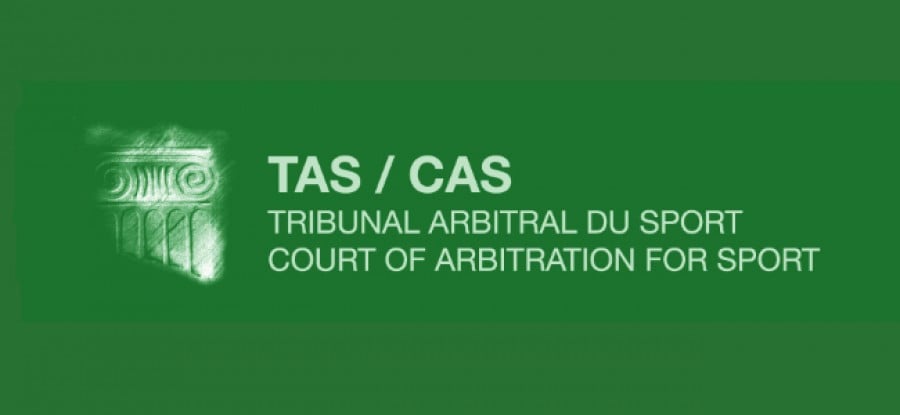

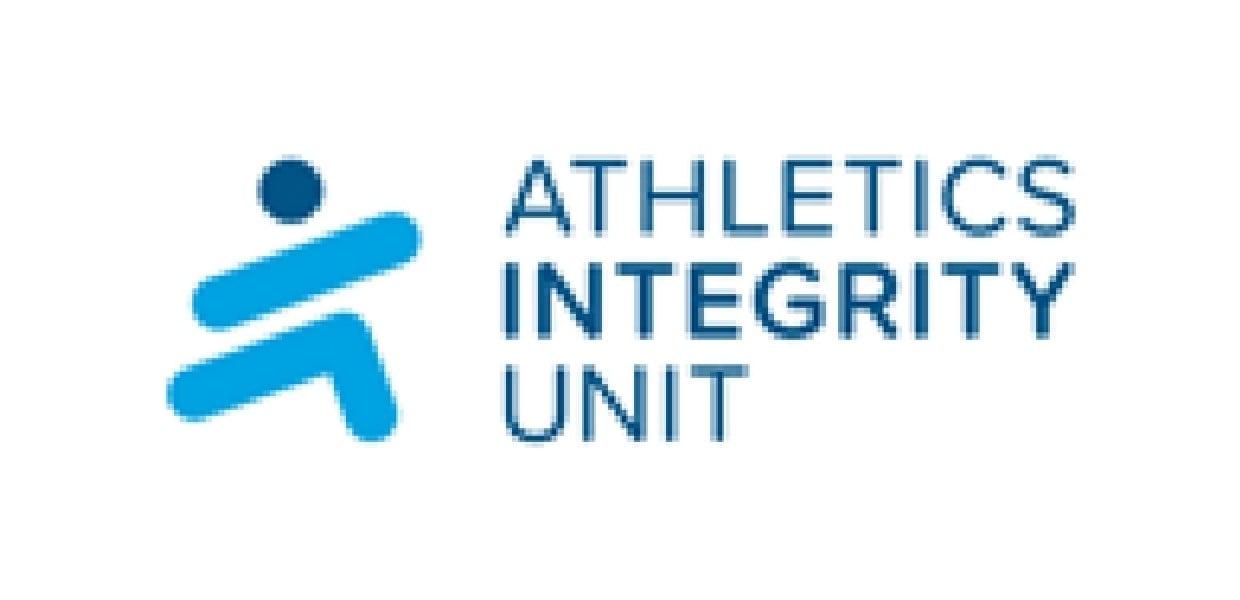
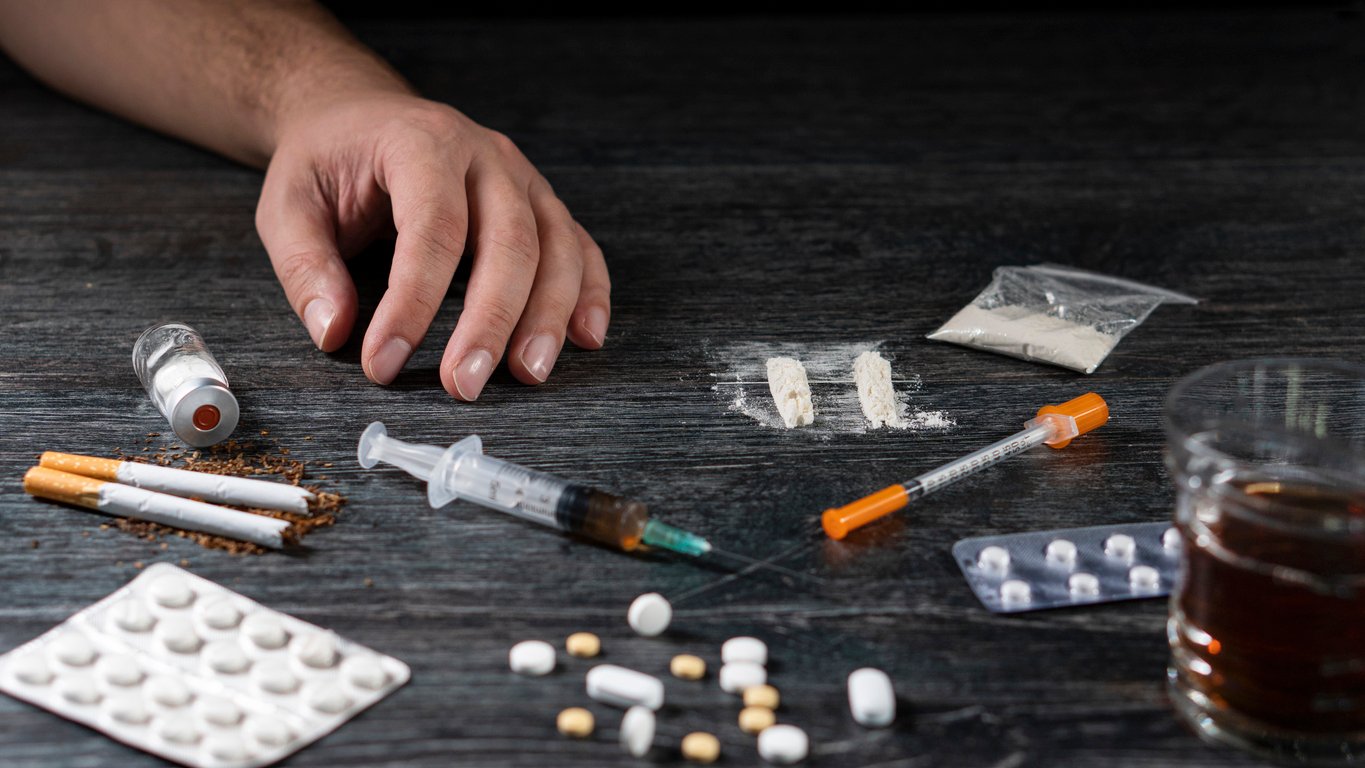
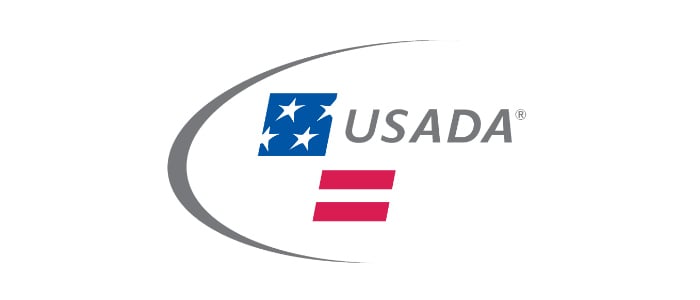
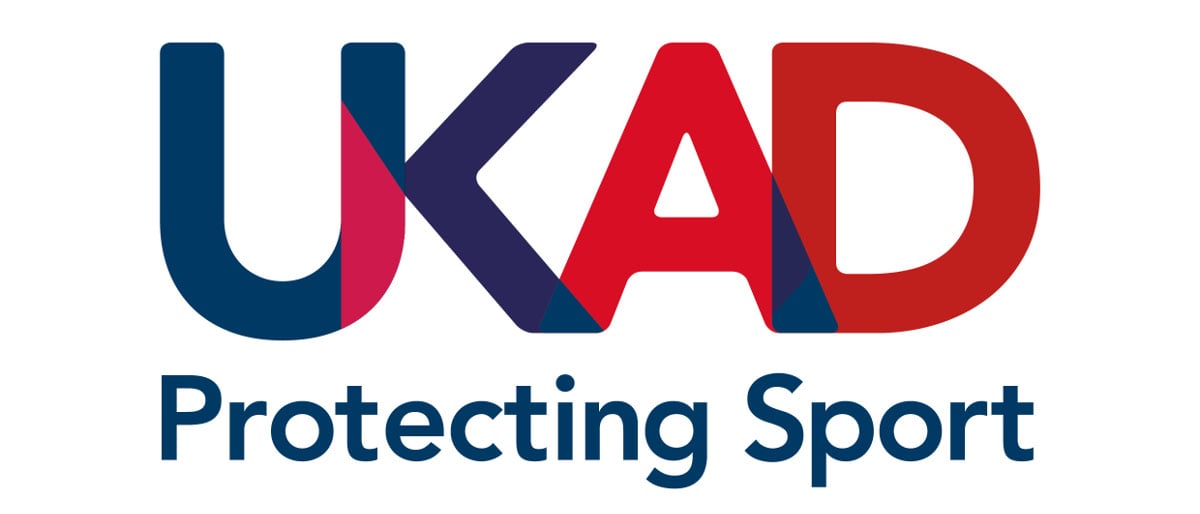
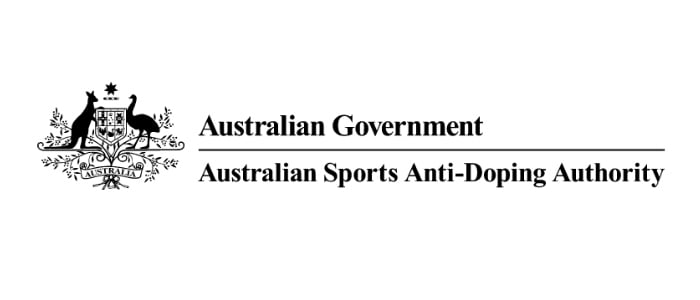
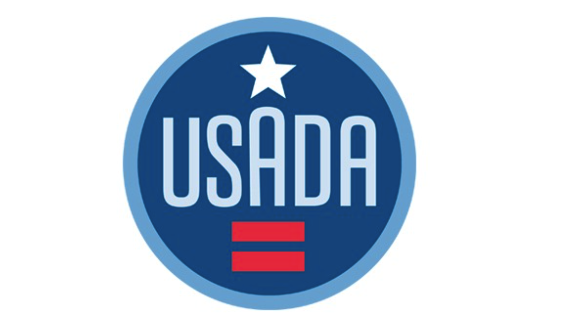


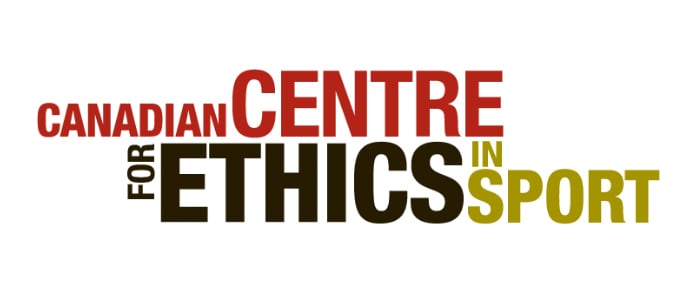

 Global Summit 2024
Global Summit 2024